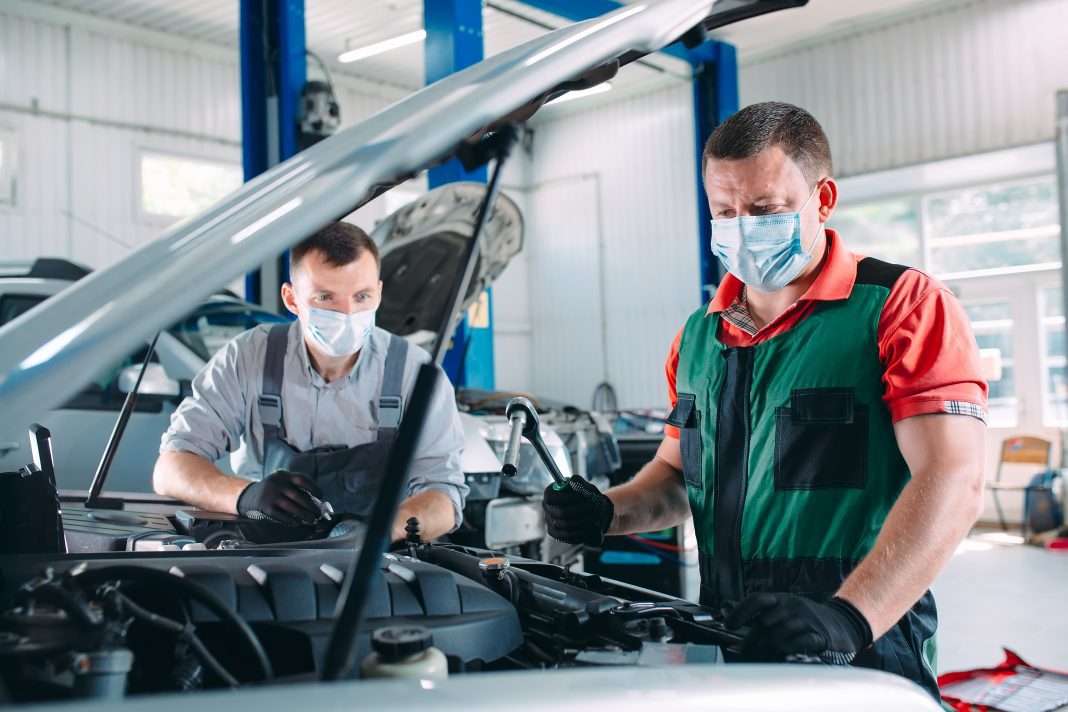After eight months of emergency authorization, coronavirus shots were finally approved by the FDA. For some auto workers, this was welcome news as they objected to getting vaccines without full approval from the government agency. In addition, the vaccine has been in use for a while now but only under medical supervision. So, many OEMs were reluctant to require employees to get it even though health officials were recommending that everyone take precautionary measures before an outbreak happens.
FDA’s ruling may increase the vaccination rate in the auto industry. Health officials and business leaders are cautiously predicting that more companies will enforce mandatory vaccines for their workforces, following FDA’s recent decision to approve a Pfizer vaccine against COVID. Some health experts hope this action by the FDA will boost inoculation rates across all ages. Right now, only about half of those who should get vaccinated do so, according to Dr. William Schaffner from Vanderbilt University Medical Center (VUMC). “There is no question we would like it better if everyone was immunized,” he added.
But what about the auto industry’s response? Although both Ford Motor Co. and General Motors have not mandated that their employees get vaccinated, GM’s CEO Mary Barra has left open the possibility that vaccines may be required in the future for specific jobs. But, of course, it all depends if there is an outbreak of COVID at GM.
Mask mandates widespread
The United Auto Workers (UAW) union said they reinstated masks requirements, August 4th, at all US plants, offices, and warehouses but do not require vaccinated workers. The UAW does encourage all employees to receive vaccinations but resists mandatory vaccines.
In a recent letter to members, UAW president Ray Curry said, “We are urging all UAW members and their families to get vaccinated. Science is telling us very clearly that the only way to get back to normal is to reach a heightened level of immunity. However, we also know that for some, there are religious and health reasons for not getting vaccinated.”
Nissan Mercedes, Volkswagen, and Toyota have said they again require masks for most US employees. Stellantis employees will also be required to wear a mask, regardless of health status but no word on forced vaccines.
Kiersten Robinson, Ford’s chief people, and employee experience officer said the company has not yet decided whether to join other employers and government agencies that require workers to get coronavirus vaccinations.
Ford has required vaccinations for employees who travel internationally to prevent possible outbreaks of infectious diseases. They are assessing whether a broader mandate is appropriate, how employees would respond, and if this requirement can be adapted in other countries with different social norms.
Vaccine mandates are a clear risk for employers in general, but they’re especially problematic for highly specialized automotive jobs. For example, many in the auto industry are fighting to fill openings at the factory with motivated people who enjoy working from home or have other job opportunities lined up if their current position goes south. And as evidenced by healthcare workers being forced to take vaccines or face termination, employees often say, “If I can’t choose what’s best for me, then I’m leaving.”
Employers are then realizing that finding a replacement isn’t easy.
Did you enjoy this article from Steven Mitchell? Please share your thoughts, comments, or questions regarding this topic by submitting a letter to the editor here, or connect with us at newsroom@cbtnews.com.
Be sure to follow us on Facebook and Twitter to stay up to date or catch-up on all of our podcasts on demand.
While you’re here, don’t forget to subscribe to our email newsletter for all the latest auto industry news from CBT News.










